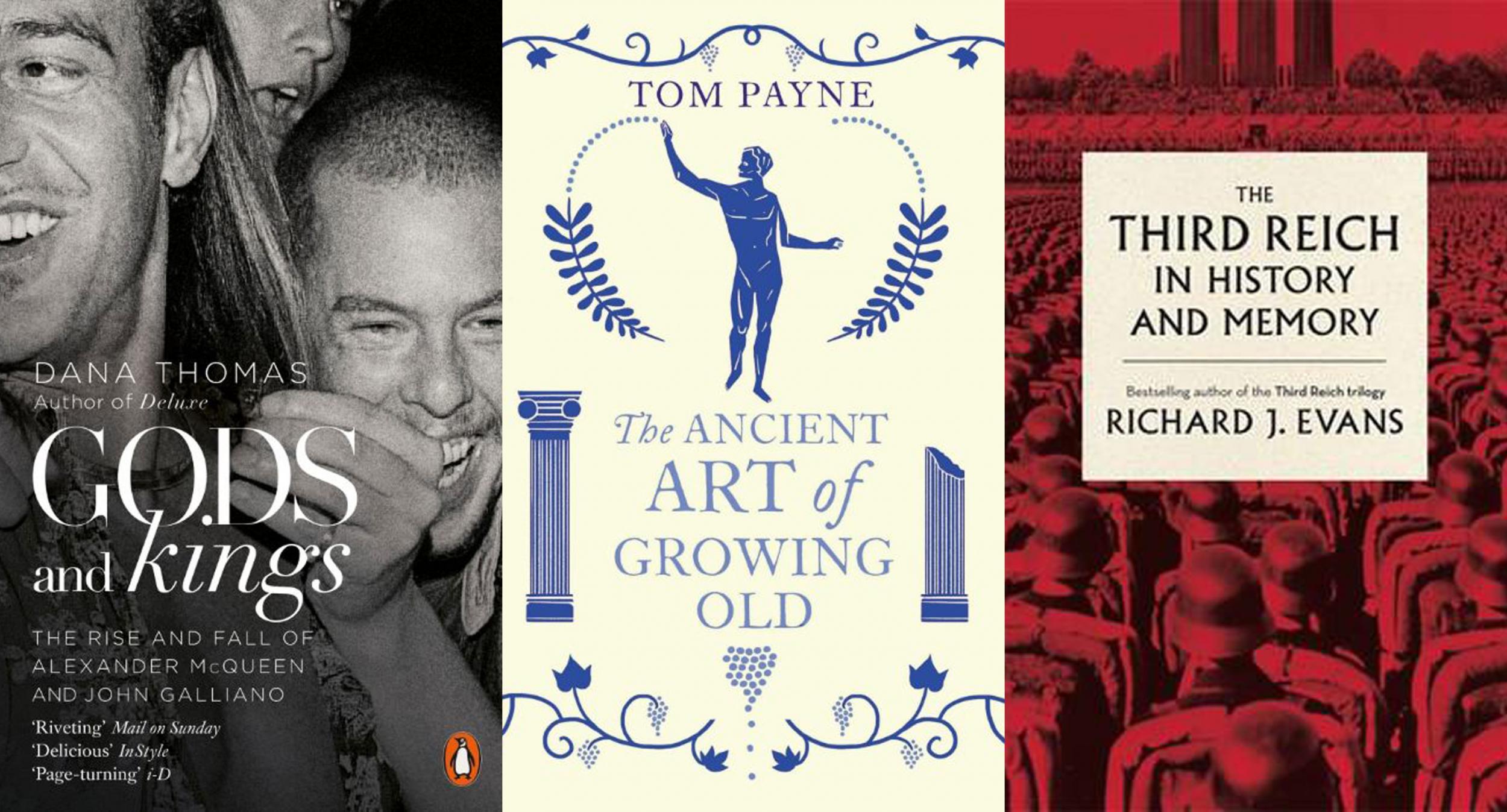Gods and Kings by Dana Thomas; The Ancient Art of Growing Old by Tom Payne; The Third Reich in History and Memories by Richard J Evans, reviews
A binocular view of the fashion industry, ancient attitudes to old age, and a highly readable study

Gods and Kings by Dana Thomas (Penguin, £9.99)
This binocular view of the fashion industry through the harum-scarum lives of working class heroes McQueen and Galliano culminates in the suicide of one and the disgrace of the other.
Although we're obliged to take their genius on trust – a 2001 Galliano show had models in "gold handcuff bracelets and dog collars, even a nun with her hands tied behind her back" – there is no denying their work rate. "At the time of his termination in 2011, Galliano was overseeing an astounding 32 collections a year."
A mesmerising tragedy from an alternative universe.
The Ancient Art of Growing Old by Tom Payne (Vintage, £8.99)
Seneca mused, "How pleasant it is to have exhausted desires and to have left them", George Melly cheered his late-life loss of libido, "like being chained to a madman".
Similarly, we might echo Cicero, who "approved of the young person who has something of the elderly about him and the old person in whom there's a bit of youth."
Unfortunately, Tom Payne, whose "65th birthday will fall in 2036", seems to have overdone the "something of the elderly" in this slightly musty account of ancient attitudes to old age.
The Third Reich in History and Memories by Richard J Evans (Abacus, £12.99)
Evans's highly readable study explores the long view of Nazism through facets as varied as the Volkswagen (a post-war German car manual "pointed out that sex in a Beetle did not qualify as indecency"), the reason for the Allied victory ("massive superiority of resources") and the unique nature of the Final Solution ("seeing world history in racial terms" plus "industrial methods").
An incidental pleasure of the book arises from his scrupulous assessment of sources. Evans's discussion of one book starts, "engrossing, clear and convincing", but ends, "very little of what it has to say is new".
Join our commenting forum
Join thought-provoking conversations, follow other Independent readers and see their replies
Comments